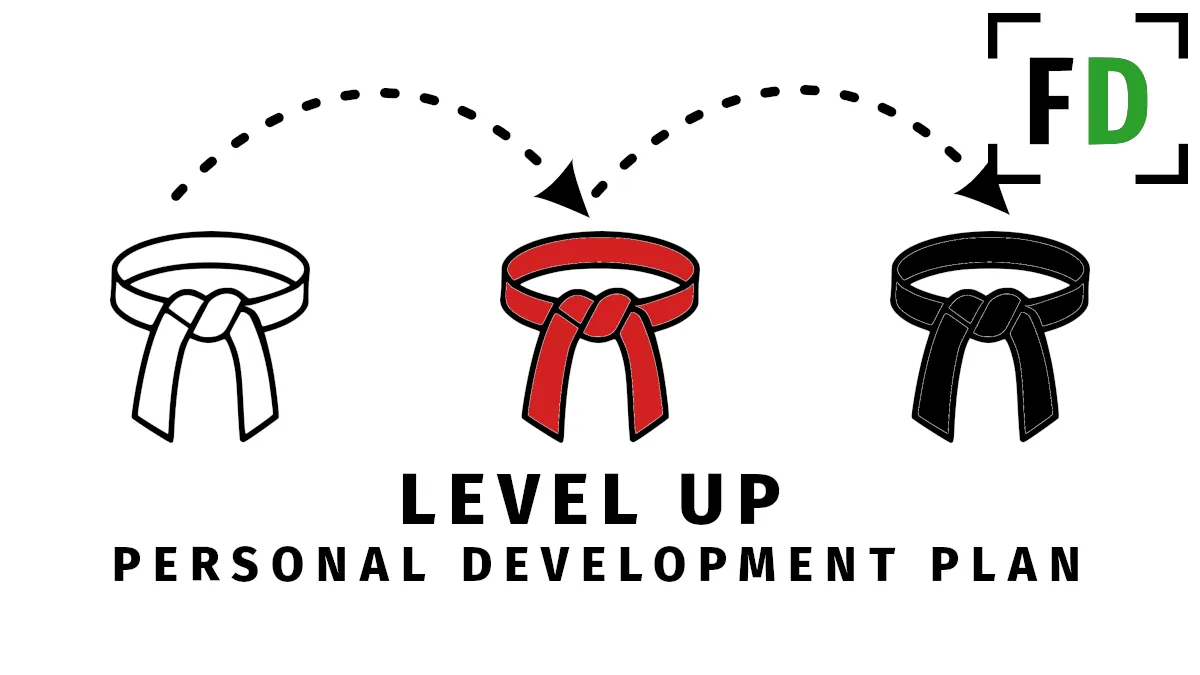Whether they know it or not, everyone has goals. Not everyone writes them down or gives themselves deadlines, but everyone has something they want to do or achieve. But so many people fall short of their lofty goals because they lack a route to take them there. Setting weekly goals is the answer; accomplish something toward your big goal every week, and you’ll get there sooner than you think.
This post will show you the methods I have taught for years for creating powerful weekly goals, things to avoid, and some great examples.
Weekly Goals and How to Set Them
Weekly goal setting is simple and something anyone can do.
Weekly goals are just what they sound like: goals you can complete and check off by the end of the week. But your goals shouldn’t be just a wishlist of things you hope to get done; they should be the top level of a plan which ensures they get done.
Before you can set your goals for the week, a little planning time is required. I suggest you set a time and date to do this each week; it won’t take long, maybe 20 minutes.
Weekly Planning Session
First, take a look at the week that’s just gone. Did you accomplish what you wanted? And if not, why not?
Those uncompleted tasks can go onto the plan for next week. And if you were unable to complete them last week, was it because you set yourself too much? Was it because you wasted too much time doing other things? Find the cause and either adjust how much work you give yourself or commit to changing your behavior.
With last week’s goal analyzed, it’s time to set your goals for the coming week.
Look at the examples below if you’re unsure of the type of goals to set. Here are some guidelines for setting weekly goals:
- Don’t set too many – unless they are single action tasks, 1-3 weekly goals is a good number.
- Don’t set all your goals on the same part of your life – 3 goals, all regarding your kitchen, may mean good progress, but if you continue to do this, your life will become unbalanced.
- Don’t overburden yourself – You must be realistic; perhaps you can finish your novel in a week, but should you? Break it down if it’s too much; a goal of 3 chapters might be better.
Once you have your goals, you’re not done planning yet. The goals are just the start.
Making goals without a plan is just wishful thinking. You must create a route through the week to reach the goal.
This starts by looking at your schedule and other commitments. The question you need to answer is, “How much time will I have to work on my goals this week?” If you have a very regular rhyme to your weekly life, this may be easy to answer and the same every week. But if you have work and family commitments that often change, you’ll need to pay extra attention at this stage.
On weeks when you know, you will be busy. You must schedule less time for your goals; on those easy weeks, you can plan more.
The last thing you want is for your weekly goals to affect the rest of your life. But, on the other hand, no one wants to decide to give up a dream because they have to go to another boring meeting at work.
Once you have a schedule for your week, I suggest you block out your free time on a piece of paper or within a calendar app.
Break your goals down into one-time tasks.
If your goal is to redecorate the living room this week, your tasks may look like this:
- Clear the space of all furniture
- Cover the carpet
- Buy Paint & paintbrushes
- First Coat
- Second Coat
- Move Everything back
You might be able to do all of this on a Saturday if you worked all day. But if you don’t have a full day to dedicate to redecorating, scheduling these tasks throughout the week will ensure you complete the project by the end of the week.
Create an action plan.
For achieving personal goals or business goals, long-term goals, or other goals, an action plan is a must-have! It will help you stay focused and follow through, keeping you accountable.
By now, you already have clear goals in mind, know when you have free time, and how much time you have. And you’ve already broken your goals down, so all you need to do is put those tasks into your schedule. If they don’t fit, you’ve overreached.
Stay Motivated
To accomplish your goals and objectives, you need to keep working at them, even on the days you don’t feel like it. The way to do this is with something motivational.
For some people, just looking over their goals will motivate them enough to pursue what they wrote down. Others may need to visualize themselves achieving this goal to take action.
Although internal motivation is always the fastest and most accessible type, on those days when you really want to quit, you might need some external motivation instead.
- Ask a friend to come over and tell them what’s going on
- Listen to music that gets you pumped up
- Try listening to motivational speeches on YouTube
Should Weekly Goals Be SMART GOALS?
The SMART goal framework is a useful set of ideas to make better goals that you will actually stick to. However, the framework was never meant to be restrictive. Not all goals need to be SMART goals, and so your weekly goals can use the SMART ideas where relevant but don’t feel you need to hit each letter!
Set goals that you think will work for you. Some short-term goals just don’t need to be SMART, but setting goals that are right for you will motivate you and make accomplishing them easier.
In case you can’t remember, effective goal setting with the SMART acronym means:
- Specific – don’t make your goals too vague.
- Measurable – Without something to measure, how will you know if you’re making progress or have completed your goal?
- Actionable or Achievable – Can you actually do your goal? If your goal is to go to Mars, it’s not a good goal because you can’t do it.
- Relevant – A goal that doesn’t fit in with your life or who you want to be is bound to failure. Sure, it would be cool to learn that obscure language, but if you don’t know anyone that speaks it, you’re bound to fail.
- Timely or Time-Bound – Give yourself a deadline. Don’t let your goals drag on forever. That’s a surefire way to make no progress.
Weekly Goal Examples
Goals Around the Home
- Decluttering the House
- Organizing The Garage
- Throwing Out Junk from the attic
- Redecorating a room
- Doing a deep clean on one room
- Purging Your Home
- Plant a garden
- Create a system for shoes, hats, coats, etc
- Rearrange the Furniture
- Flip the mattresses
Career Goals
- Take an online course
- Talk to your boss about a raise
- Set up a system for your emails
- Take on a new project
- Update your CV
- Research other companies in your industry
- Look for a new job
- Work on getting a promotion
- Get to know a colleague at work
- Practice answering interview questions
Social Goals
- Meet an old friend
- Ask someone out on a date
- Hold a dinner party
- Join a new club or society
- Get in touch with your friends from school
- Join a dating app
- Start a conversation with a stranger
- Start a weekly games night
- Join a support group
- DM someone you’ve always wanted to
- Take an evening class with a friend
Family Goals
- Read to your child every day
- Go out on a date night with your partner
- Take the family out for the day
- Plant a tree with your family
- Go to the beach
- Plan a holiday together
- Start saving for your kids’ college
- Start a martial arts class with your kids and partner
- Go to a sports game
- Visit someone you love
Fitness Goals
- Loose 5lbs
- Hit the gym three times
- Run 10 miles
- Hit a new PR on the benchpress, squat, press, or deadlift
- Start a fitness class
- Go to a yoga class
- Buy a new piece of fitness equipment
- Apply for a marathon
- Join an Ironman
- Train for a competition
- Ask friends to play tennis
Finance Goals
- Pay off your credit card
- Pay $xxx off your debt
- Open a savings account
- Start investing in index funds
- Read a book on finance or investing
- Put money away for your kids
- Complete your will
- Give to charity
- Create a budget and stick to it
- Buy something you’ve always wanted
Health Goals
- Start the ketogenic diet
- Quit Sugar
- Quit Drinking Alcohol
- Go for a checkup
- Cook all your meals this week
- Start a healthy morning routine
- Get better quality sleep
- Reduce screen usage
- Find a therapist to talk to
- Go to bed earlier
Spiritual Goals
- Pray everyday
- Read a book of the Bible this week
- Memorize a passage from the Bible
- Meditate everyday
- Join a charity and go work for them
- Go to church
- Show someone your gratitude
- Ask for forgiveness
- Read a book to improve your spiritual life
- Plan a trip to a pilgrimage site
Grown Up Goals
- Pay off your debt
- Learn to cook something new
- Change your career
- Invest in your future
- Buy a house
- Start a side hustle
- Spend more time with family and friends
- Commit to learning a new language
- Learn to play a musical instrument
- Start a new hobby
Productivity Goals
- Build a second brain
- Learn GTD
- Get a task management system
- Learn how to delegate the boring stuff
- Learn how to take notes
- Setup a Zettelkasten
- Start a bullet journal
- Learn personal knowledge management






